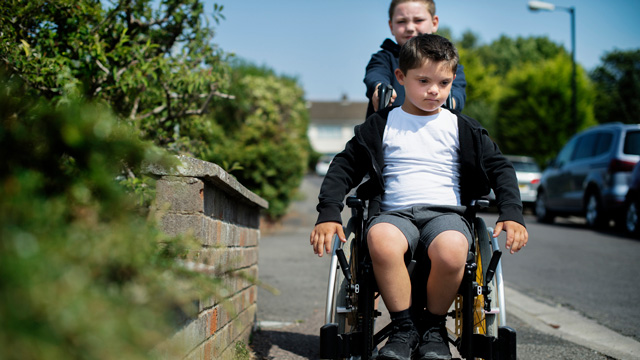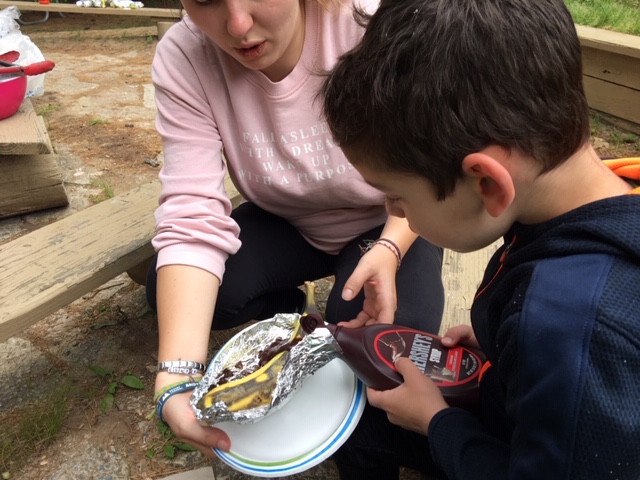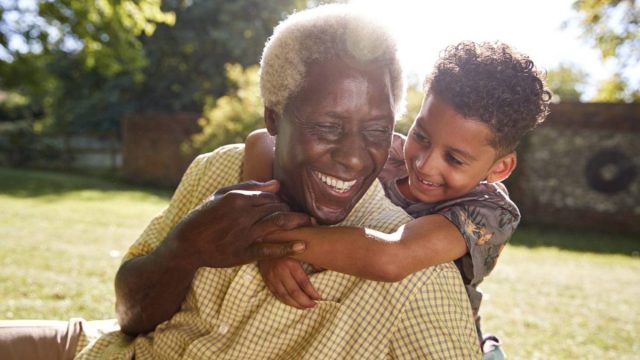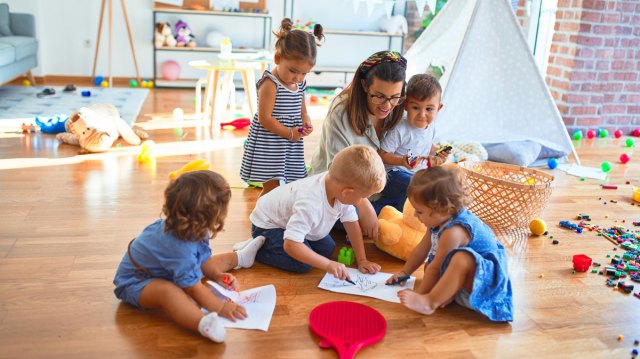Please don’t judge me if you happen to see my kids eating packaged Ritz crackers for school lunch. Don’t judge me if they’re on the sidelines at PE because they forgot their uniform. Don’t judge me if they didn’t turn in their homework because it’s still sitting home on their desk.
What some may view as a lack of parenting is what I deem “parenting on purpose” as we work to build necessary life skills in our kids. I stopped making daily breakfasts and packing school lunches long ago. I don’t feel obligated to deliver forgotten items left behind at home. And school projects and homework are not any part of my existence.
After all, how do we raise competent adults if we’re always doing everything for our kids? I suggest walking away from doing these 8 things for your teen this school year:
1. Waking them up in the morning
If you are still waking up little Johnny in the a.m., it’s time to let an alarm clock do its job. My four kids have been expected to get themselves up since they started middle school. There are days one will come racing out with only a few minutes to spare before they have to be out the door. The snooze button no longer feels luxurious when it’s caused you to miss breakfast.
I heard a Mom voice out loud that her teen sons were just still so cute that she loved going in and waking them up every morning. Please stop. I find my sons just as adorable as you do, but our goal is to raise well-functioning adults here.
2. Making their breakfast and packing their lunch
My morning alarm is the sound of the kids clanging cereal bowls. My job is to make sure there is food in the house so that they can eat breakfast and pack a lunch.
One friend asked, “Yeah but how do you know what they’re bringing for school lunch?” I don’t. I know what food I have in my pantry, and it’s on them to pack up what they feel is a good lunch. It will only be a few short years, and I will have no idea what they are eating for any of their meals away at college. Free yourself from the PB and J station now.
3. Filling out their paperwork
I have a lot of kids, which equates to a lot of beginning-of-the-school-year paperwork. I used to dread this stack until the kids were old enough to fill all of it out themselves. Our teens are expected to fill out all of their paperwork to the best of their ability. They put the papers to be signed on a clipboard and leave them for me on the kitchen island. I sign them and put them back on their desks.
Hold your teens accountable. They will need to fill out job and college applications soon, and they need to know how to do that without your intervention.
4. Delivering their forgotten items
One Monday morning, we had pulled out of our driveway and just turned the corner when my daughter realized she had forgotten her phone. “We have to go back, Mom!” Another kid exclaimed that he had forgotten his freshly washed and folded PE uniform in the laundry room. I braked in hesitation as I contemplated turning around. Nope. Off we go, as the vision surfaced of both of them playing around on their phones before it was time to leave.
Parents don’t miss opportunities to provide natural consequences for their teens. Forget something? Feel the pain of that. Kids also get to see that you can make it through the day without a mistake consuming you.
We also have a rule that Mom and Dad are not to get pleading texts from school asking for forgotten items. It still happens, but we have the right to just shoot back, “That’s a bummer.”
5. Making their failure to plan your emergency
School projects do not get assigned the night before they are due. Therefore, I do not run out and pick up materials at the last minute to get a project finished. I do always keep poster boards and general materials on hand for the procrastinating child. But they may have to wait for other needed items. Do not race to Michael’s for your kid who hasn’t taken the time to plan.
This is a good topic to talk about in weekly family meetings. Does anyone have projects coming up that they’re going to need supplies for so that I can pick them up at my convenience this week?
6. Doing all of their laundry
“What? YOU didn’t get my shorts washed?” This response always backfires on the kid who may lose their mind thinking that I’m the only one who can do laundry around here. Every once in a while a child needs a healthy reminder that I do not work for them. The minute they assume this is my main role in life is the minute that I gladly hand over the laundry task to them.
Most days I do the washing and the kids fold and put away their clothes, but they are capable of tackling the entire process when need be.
7. Emailing and calling their teachers and coaches
If our child has a problem with a teacher or coach, he is going to have to take it to the one in charge. There is no way that we, as parents, are going to question a coach or email a teacher about something that should be between the authority figure and our child.
Don’t be that over-involved parent. Teach your child that if something is important enough to them, then they need to learn how to handle the issue themselves or at least ask you to help them. Obviously, there are certain cases that do require intervention, but not when it comes to the day-to-day stuff.
8. Meddling in their academics
Put down the pencil, parents. Most of the time, I honestly couldn’t tell you what my kids are doing for school work. We talk about projects and papers over dinner, but we’ve always expected our kids to own their work and earn their grades. At times, they’ve earned Principals Lists, Honor Rolls, and National Junior Honor Society honors of their own accord. At other times, they’ve missed the mark.
Apps and websites where parents can go in and see every detail of their children’s homework and progress are not helping our over-parenting epidemic.
Related: PSA: You Do Not Need to Manage Your Kid’s Homework
Once in a blue moon, I will ask the kids to pull up their student accounts and show me their grades because I want them to know I do care. I did notice our daughter slacking off at the end of last year, and my acknowledgment helped her catch up, but I’m not taking it on as one of my regular responsibilities—and you shouldn’t either.
What is your parenting goal? Is it to raise competent adults?
If so, then let’s work on backing off in areas where our teens can stand on their own two feet. I know they’re our babies, and it feels good to hover over them once in a while, but in all seriousness, it’s up to us to raise them to be capable people.
I want to feel confident when I launch my kids into the real world and know they are going to be just fine because I stepped back to let them navigate failure and real-life stuff on their own.
So please don’t judge me if my kids scramble around, shoving pre-packaged items into that brown paper lunch bag before racing to catch the bus. It’s all on purpose, my friends.






































